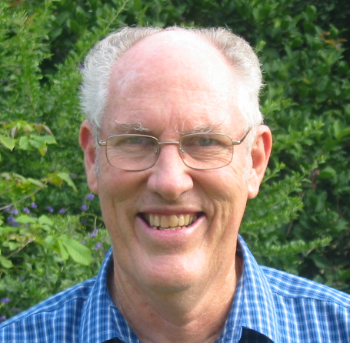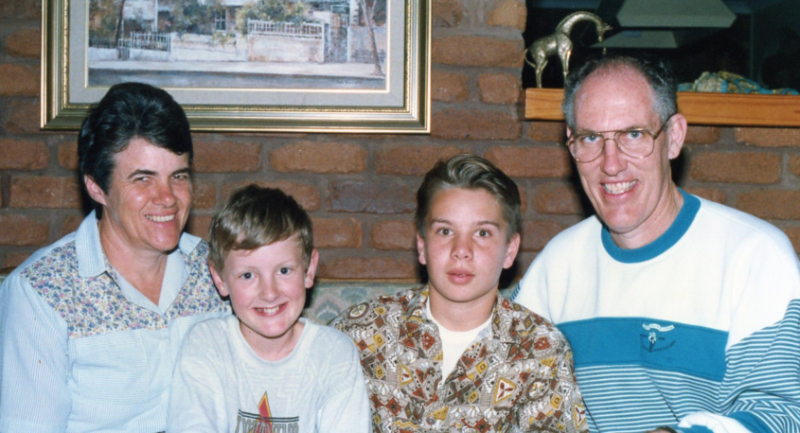Encouraging, equipping, and caring
Ron and Julie Neller interview Dr Don Hardgrave

Dr Donald Hardgrave has diplomas in theology and religious education from Melbourne University, a further theology diploma from Melbourne Bible institute, a graduate diploma in Christian ministry from Malyon Baptist College, and a Bachelor of Divinity from Queensland University. He also earned a master’s degree dealing with church planning and strategy, and a doctorate in theology which focused on the history of the Wesleyan movement and its application to churches today.
Don is also a trained state schoolteacher. From 1984–1987 he was National Superintendent of the Wesleyan Methodist Church in Australia. Since 2005 Don has served on the CMI-Australia Board of Directors, and in 2014 took on a volunteer speaker’s role for several years, travelling extensively around Queensland and New South Wales.
With his wife Delcie, Don lives in Brisbane, where they have raised their two sons, Andrew and John.
We were privileged to interview ‘Pastor Don’ as he is widely known. We were moved at times by his testimony and experiences. Don has had a close relationship with CMI since the 1970s. He has used CMI resources for decades, particularly for youth camps. He has also been widely involved in encouraging, training, and equipping many other pastors.
Born and raised in Brisbane, the capital of Queensland, Australia, Don gave his life to Christ at age 10 at a Sunday night service. He reaffirmed this at a high school camp at age 16 and began teaching Sunday School soon after. The Christian camp “… made a huge impression on me” and opened a desire to become a pastor. In his final years at secondary school he would speak to groups of younger students during lunch breaks, on Scripture and the adventure of the Christian life.
Don worked initially as a primary (elementary) then a secondary teacher. Even before he commenced pastoral training following his marriage in 1970, he had already given over 100 ministry presentations. During his training, Don was an effective and passionate preacher of the Word. He was in the second year of his studies when he was appointed assistant pastor of a church in Melbourne.
In 1974 he became a pastor within the Wesleyan Methodist church and worked to establish the first of such churches in Queensland. This led to a pattern of planting new fellowships, and a total of 34 churches were established over the following 17 years. At one stage Don was establishing and pastoring five churches, two in country towns and three in Brisbane. We asked him how he laid the groundwork for a church, and how creation came into that.

Listening to needs
Don would start home groups, or work with existing ones, relying on personal contacts. Listening to people’s needs was paramount. If they were unsaved, or were suffering, they often sought purpose and meaning. If saved, they may have been questioning why God let their mother die, or why a particular sin occurred. Don said he was mostly
involved in restoration growth, for people who had given up on God or were disillusioned with life. As they were seeking answers, teaching was a part of my planting. I was looking for a felt need. It’s not that Genesis was a part of that felt need, rather it was an important part of the foundation to clarify God’s answer to the felt need.
Christian youth camps
Having reaffirmed his faith at a youth camp, Don saw great potential in these events. But rather than being mainly fun-focused, he added more teaching. This included a series of character studies from Scripture, applying the lessons to the lives of today’s youth:
These studies show teen audiences that many biblical heroes grappled with the same issues they do: submission to authority, sexual temptation, loneliness, and so on.
After leading camps with Scripture Union and again with Christian Endeavour, he began youth camps within the Wesleyan church, beginning with just 12 teens. Linked with the character studies, he emphasized that God has a plan for every person’s life. The numbers grew rapidly, and over the following decades he trained over 20,000 students at camps, running up to 6–7 camps a year. Substantial numbers of youth made either first-time commitments to Christ or to a life of full-time service.
At these camps Don always affirmed the reliability of Scripture, and included some aspect of creation or Noah’s Flood in the initial sessions. Asked why, he replied:
It’s foundational. When I later ask them to repent, they must understand that they repent from sin against God—Who is their creator. Sin was established with what happened in Eden. And the Flood shows God’s judgment on sin. Jesus used this real past judgment to warn of a sure future judgment for the unrepentant (Luke 17).
The Bible and sin
Don says pastors at youth camps need to understand the importance of how they handle Scripture:
I live in the firm conviction that every word in the Bible is inspired. And so, the youth will capture that feeling, even with incidental throw-away statements, as much as they do in the thrust of the message. Leaders should frequently say things like, ‘This is covered in the Bible’; ‘You can trust the Bible’. Referring to the Bible establishes the credibility of the message. And the way you handle Scripture conveys your confidence in its trustworthiness.
Don feels we need to get back to the basics regarding sin. He says it is crucial to the foundation one lays preceding a conversion. “Even ignoring God is the wrong thing—it’s a sin, it’s offensive.” Therefore, Don speaks of Genesis creation at youth camps:
If you are going to tell the teens that God used evolution, that implies He allowed death and suffering from the beginning. Whereas Scripture clearly states the opposite—God made a perfect world. Sin, death and suffering entered because of human disobedience. They will one day be removed.
We asked Don whether the topic of sin is adequately covered these days amongst young people. He responded:
Clearly not. Today, evolution as taught removes from the picture a personal God who owns the world He created—One who therefore determines what is right and wrong. So there is no place for sin in that worldview. Our youth need clarity on their values base. The personal Creator-God of the Bible is crucial for a culture’s sense of moral right and wrong.
Don was still at school in the first year that evolution was added to the Australian school curriculum, and he saw its damaging effects firsthand. It was challenging. However, he shared that in his lifelong daily readings of the Bible, he has always taken it at face value. He came to realize that “God could have done it [created] in five minutes, but He wanted to let us know about the rest-day principle” (shown in Exodus 20:8–11). He notes that evolution is not a new idea. It was first presented by the ancient Greeks and contributed to the collapse of their culture.
Creation materials
Don said CMI materials were excellent with youth at his camps. As an example, he mentioned plate tectonics, which youth already know something about. Once CMI publicized the Flood modelling incorporating this, it was easier for youth to comprehend the Flood.1
The water did not have to cover Mt Everest as we now know it. Tectonics could have pushed the mountain up (as secularists believe; it’s still rising today)—after the Flood. This also explains where all the water went, as the oceans deepened. It made sense to teens, who really appreciated such information on the scientific credibility of Scripture.
Enriching pastors
The usual ‘retiring age’ is irrelevant in the light of Don’s passion. He still teaches Christian leadership training modules for the state-approved adult education sector, for which his background studies in secular and church history have been particularly valuable.
Much of Don’s entire ministry has been to pastors—encouraging, equipping, training, and mentoring. This also involved lecturing in Switzerland and the USA for a time. He still acts as ‘caretaker pastor’ for churches from time to time, and speaks at seminars for pastors. Asked for advice to pastors on engaging a congregation on Genesis and creation, he said:
First, win their hearts. You must treasure them, respect them, love them. Do this sincerely, and you win their trust.
Secondly, serve God wholeheartedly. In doing so they will observe how you handle and engage with the Word of God, always with respect. I never make jokes about Bible characters.
Finally, be ready to have answers for conversations that arise. I always carry copies of the Creation Answers Book2 and Christianity for Skeptics3 in the car.
Don’s point was clear—the message of creation by itself, without building rapport, can be difficult. “You’re challenging a major cultural assumption”. A conversation on the Book of Genesis must rest upon mutual respect. He then reiterated how important the creation.com website is for students and pastors especially. Indeed, “I continue to enjoy giving away copies of the Creation magazine at every opportunity.”
But how would he speak to a pastor who doesn’t believe in biblical creation?
It may sound simplistic, but I listen, and I try to ask questions—strategic ones that open doors for further discussion. I am not there to win the argument. I am there to win their hearts. They hear the ‘I care’ signal before they hear the ‘I know’ signal. Winning a debate without winning friendship is largely pointless.
This caring is really the core of Don’s message, and is one for all of us. It is the message that underpins 1 Peter 3:15: “But in your hearts honor Christ the Lord as holy, always being prepared to make a defense to anyone who asks you for a reason for the hope that is in you; yet do it with gentleness and respect.”
References and notes
- See e.g. creation.com/cpt. Return to text.
- Available creation.com/s/10-2-505, including in bulk. Return to text.
- Available creation.com/s/10-2-585, including in bulk. Return to text.










Readers’ comments
Comments are automatically closed 14 days after publication.